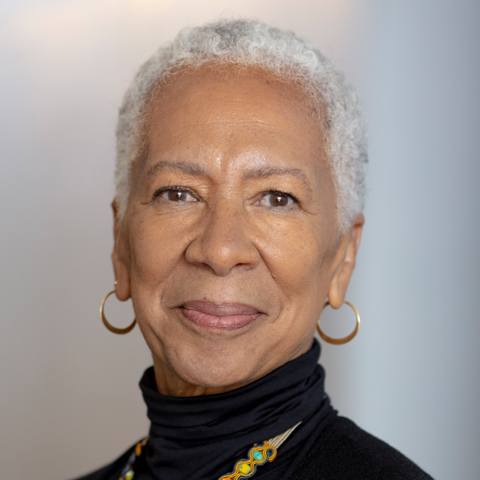PolicyLink CEO Weighs In on My Brother’s Keeper Debate
As a longtime advocate for equity, inclusion, and social justice, I've become firmly convinced that to achieve universal goals that benefit all sometimes it's necessary to engage in targeted strategies. My Brother's Keeper, a new effort by the Obama Administration to address the unique and particular challenges facing boys and men of color, is just the kind of approach that has the potential to move the needle toward equity for all.
Yet My Brother's Keeper has stirred up an interesting and robust debate on the initiative's singular focus on boys and men of color. Opinions have proliferated, with voices being raised through letters, including one questioning the focus of the initiative signed by 1,000 women of color and another from the National Women Leadership Supporting My Brother's Keeper, and on blogs (The Nation, the Daily Beast, and CNN, among others). While some support the focus on boys and men of color, others ask why the initiative is not more inclusive of girls and women of color. After all, these voices say, both groups have been subjected to the burdens of racism, prejudice, and stereotypes, attend the same failing schools, suffer the impact—direct and indirect—of an unjust criminal justice system, and live in the same isolated, impoverished, unhealthy communities.
Of all the pieces that I have come across, I particularly identify with the view so beautifully articulated by john a. powell and Maya Rockeymoore in the July 8, 2014 issue of Chronicle of Philanthropy—"Obama's Plan to Aid Black Men and Boys Will Be a Boon to Other Groups, Too." In this piece, powell and Rockeymoore argue that our policies must be informed not by equal treatment but by equal concern for all groups. "A plan that focuses on everyone, without recognizing that different groups are in unique situations and need responses appropriate to their position, will fail at delivering equal concern or effective outcomes." They add that when structures are transformed to work for marginalized groups, they end up benefiting all groups.
The sentiments in their piece are reflected in the Alliance for Boys and Men of Color , a California statewide network of organizations, supported by PolicyLink, that aims to advance a comprehensive set of policy and systems change efforts to improve health and successful outcomes for boys and men of color. Like My Brother's Keeper, the Alliance seeks to remove the "systemic barriers" erected by inferior education, limited job opportunities, and neighborhoods that lack other basic necessities. Again, like My Brother's Keeper, it is a targeted strategy that—when successful—contributes to achieving universal equity.
Listening directly to young men of color, the Alliance has successfully advocated for several important policies, including the implementation of the Career Pathways Trust Fund, the California effort to provide resources for K-14 career programs that allocated $250 million in 2014 and plans a similar allocation in 2015. Targeted toward disconnected and disadvantaged youth, the fund offers on-ramps to economic opportunity for young men and young women in California who are navigating one of the most competitive labor markets in the country.
Similarly, in Baltimore, Joe Jones, founder, president, and CEO of The Center for Urban Families, began a program targeting black fathers. This effort led directly to the passage of Couples Advancing Together—legislation initiating a pilot program that goes beyond simply trying to collect child support, and seeks to strengthen families by including fathers in decisions that affect their children and providing supports to build and maintain healthy, committed relationships.
For the country to succeed all must be able to participate, prosper, and reach their full potential. Getting there will require identifying the needs of people of color, and employing targeted strategies that address those needs. Doing so not only improves outcomes for those often left behind, but creates benefits for all.
